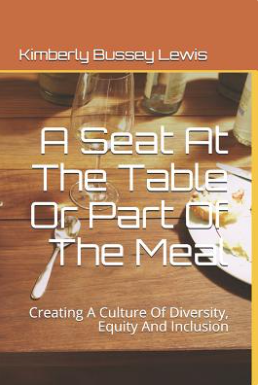MINDFULNESS BLOG HEATH BLOG KINDNESS BLOG QUALITY OF LIFE BLOG
The Up Deeds blog
Our blog posts are created by those that share the same call to give back to others.
We give them the full credit they are due, and links so you can benefit from other information they share.

How Religion Defines and Values Diversity, Equity, and Inclusion
By Up Deeds
These religions illustrate that diversity, equity, and inclusion are often deeply embedded in their teachings and practices, encouraging their followers to recognize the value of all individuals and strive for a more just society. Diversity, equity, and inclusion (DEI) can be seen as values in many religious traditions, though the emphasis and interpretation may vary. Here are a few religions that notably value these principles:
1. Buddhism:
- Diversity: Buddhism teaches that all beings have the potential for enlightenment, regardless of their background. This encourages an appreciation for the diversity of experiences and perspectives.
- Equity: The principle of "interconnectedness" emphasizes that all beings are equal in their capacity for suffering and joy. In many Buddhist teachings, hierarchy is downplayed, and the inherent worth of all individuals is recognized.
- Inclusion: Buddhist communities often strive to be inclusive, welcoming individuals from all walks of life into their practice without discrimination.
2. Judaism:
- Diversity: Judaism is diverse, with various movements (Orthodox, Conservative, Reform, etc.) that recognize and celebrate different interpretations of the faith. Jewish teachings express the importance of welcoming strangers and embracing diversity.
- Equity: Central to Judaism is the belief that all people are created in the image of God (B'Tzelem Elohim), which affirms the inherent dignity and equality of every individual.
- Inclusion: Many Jewish communities actively work to create inclusive spaces, ensuring that all members, regardless of gender, sexual orientation, or ability, feel valued and included.
3. Christianity:
- Diversity: The Christian faith encompasses many denominations and traditions, each contributing to a rich tapestry of beliefs. Many Christian teachings encourage the acceptance of diverse cultures and backgrounds as part of God's creation.
- Equity: The New Testament emphasizes the equality of all believers in Christ (Galatians 3:28), breaking down barriers of ethnicity, gender, and social status.
- Inclusion: Jesus’ ministry actively included marginalized groups, and many contemporary Christian denominations work to ensure that their communities are inclusive and welcoming.
4. Islam:
- Diversity: Islam acknowledges the beauty of diversity among humanity, as stated in the Quran (Surah Al-Hujurat 49:13), which speaks of humans being created from different nations and tribes to know one another.
- Equity: The concept of equality is fundamental in Islam, where all individuals are viewed as equal in the eyes of Allah, regardless of race or social status. The Quran emphasizes justice and fairness.
- Inclusion: The Muslim community (Ummah) is meant to include all who profess the faith, and many Islamic organizations actively promote inclusion by reaching out to marginalized groups.
5. Hinduism:
- Diversity: Hinduism is inherently diverse, incorporating various beliefs, practices, and rituals. The concept of "Dharma" encourages acceptance of different paths and lifestyles.
- Equity: While historical caste systems have posed challenges, many contemporary Hindu leaders advocate for equality and the rejection of caste discrimination, emphasizing the inherent value of every individual.
- Inclusion: Many Hindu communities work towards inclusivity, celebrating various cultural practices and welcoming individuals from different backgrounds to join in worship and community events.
Would you like to receive a monthly uplifting and helpful blog?
That's great to hear, just click the button to sign up.

